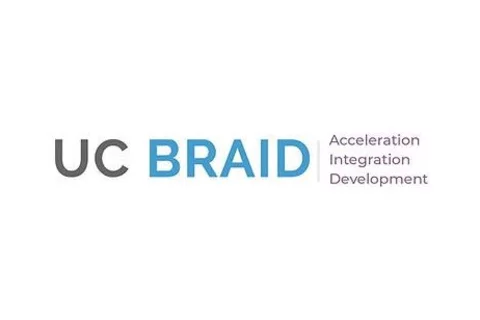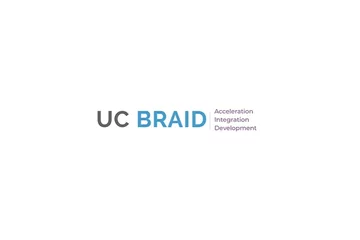UC BRAID: A clinical trial pilot pioneers a new era of collaboration, innovation and equity
In collaboration with UC Health’s Center for Data-driven Insights and Innovation (CDI2), UC BRAID launches the first UC Health Data Warehouse

Dr. Erin Van Blarigan, an epidemiologist at UC San Francisco, is dedicated to improving cancer survivorship.
Her National Cancer Institute-funded clinical trial, called Tools To Be Fit, aims to figure out the best way to help cancer survivors improve their overall health and wellbeing after they have completed treatment for their cancer. While her research thus far has provided insights into how cancer survivors can improve their health and quality of life within the Bay Area, her team seeks to enroll a diverse population of participants living throughout California – including northern California Central Valley counties, many of which are served by UC Davis.
That said, expanding the pool of potential trial participants and aggregating data from UC San Francisco and UC Davis has often proved challenging.
A new UC pilot program launched this year opens up a new, more efficient process for recruiting patients and aggregating patient data from two or more UC Health locations. This means UC Health investigators and researchers, like Dr. Van Blarigan, can leverage data from across the system and recruit and enroll participants in life-changing clinical trials statewide.
A community-informed approach to clinical trials
The University of California Biomedical Research Acceleration, Integration & Development (UC BRAID), in collaboration with UC Health’s Center for Data-driven Insights and Innovation (CDI2), recently partnered to offer study teams the opportunity to pioneer the use of CDI2’s UC Health Data Warehouse. Now, study teams can identify and recruit patients across the UC Health system to better meet enrollment goals and enable the recruitment of more diverse study populations. This means that researchers will be able to attract participants from different geographic locations, socio-economic statuses, and racial and ethnic backgrounds from across the state, thereby facilitating research that can better serve California's diverse communities.
Five clinical trials were selected for the pilot study. In addition to Dr. Van Blarigan’s study which aims to improve cancer survivorship and will recruit 400 cancer survivors and 400 of their support persons, there are four additional studies that focus on areas of inquiry such as breast cancer, lung cancer, and screening for Alzheimer's and related dementias. To access the resources offered by the CDI2/UCBRAID Health Data Warehouse pilot, applications had to be for clinical studies or trials that would include two or more UC Health locations for recruitment. To be considered, study teams also had to explain how trial recruitment across multiple UC sites would help their study enroll a more diverse population. The selected pilot study researchers then receive technical support and guidance to carry out their work.
Leveraging the UC Health Data Warehouse
The UC Health Data Warehouse (UCHDW) and CDI2 analytics support is vital to the pilot program. The UCHDW is a centralized repository of electronic health record data from across the six UC academic health centers overseen by CDI2 that currently holds data on 8.7 million patients seen at a UC facility since 2012. These patients received care from nearly 100,000 health care providers in approximately 378 million encounters. In those encounters, UC Health conducted over 1 billion procedures, ordered or prescribed more than 1.3 billion medications, made more than 5.2 billion vital signs and test result measurements, including 35,000 sequenced cancer genomes, and assigned more than 1.1 billion diagnosis codes. In order to enable successful recruitment from the UCDHW, CDI2 provides analytics support to help identify cohorts of potentially eligible patients.
"UC’s Health Data Warehouse contains invaluable information on more than 1 billion procedures. This important pilot study can help us leverage our collective resources and public service commitments to discover the next medical breakthroughs for broader groups of Californians."
Elizabeth Boyd, PhD, Director of the UC Biomedical Research Acceleration, Integration & Development (UC BRAID)
From the lab bench to the bedside
Clinical trials can discover life-saving care, making it essential for researchers to easily identify and recruit eligible participants from varied backgrounds.
UC’s five Clinical and Translational Science Award campuses (CTSAs) – UC Davis, UC Irvine, UCLA, UC San Diego, and UC San Francisco – are powerful engines of “bench to bedside” medical research. The principal investigators at the five CTSA campuses launched UC BRAID to remove administrative barriers to research, facilitate opportunities for multi-site collaboration, and develop resources that can be used by all campuses. Thanks to UC BRAID’s leadership, the CTSAs can more easily collaborate with each other and share data to facilitate new treatments, medications, and technologies for care tailored to patient needs. These relationships help connect researchers and patients to nearly 5,000 clinical trials, spanning more than 2,400 conditions in areas such as lung cancer, diabetes, melanoma, COVID-19, and more.
Collaborating for care
The pilot study speaks to UC BRAID’s systemwide goals – foster research collaboration and alignment, coordinate campus programs to maximize UC Health’s ability to conduct innovative clinical and translational research and engage California’s diverse communities to guide and advocate for community-informed research.
This means that patients recruited through the UCHDW pilot can now contribute to the collective research knowledge of the multi-site UC Health system, regardless of where they live in California.
"UC BRAID offers an invaluable resource for UC researchers because the universe of trial recruits just got exponentially bigger. Bigger data sets allow us to discern trends and life-saving insights we might otherwise miss. I’m looking forward to seeing how the pilot and the UCHDW will allow us to reach and assist underserved communities in new ways."
Cora Han, J.D., UC Health's Chief Health Data Officer and Executive Director of the Center for Data-driven Insights and Innovations (CDI2
This story was originally posted in the University of California Health Newsroom.
Image source: UC BRAID



